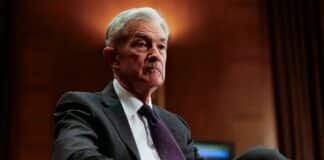This year marks the 22nd anniversary of the horrific events of September 11, 2001. Across the nation, Americans have come together to honor the fallen, their families, and the brave first responders who risked their lives to save others. But this year’s commemorations are marked by a notable absence—President Joe Biden has chosen not to attend any of the 9/11 ceremonies. What message does this send, both to Americans and to the rest of the world?
The Importance of the President’s Presence
The President of the United States is not just a political leader; he is also the head of state, representing the nation in ceremonial matters. His attendance at significant events like the 9/11 commemorations sends a strong message of unity and collective remembrance. His absence, therefore, is not just a matter of scheduling but a choice that carries weight and significance.
President George W. Bush stood among the ruins of the World Trade Center just days after the attacks, a powerful symbol of America’s resilience and determination to rebuild. President Barack Obama attended the tenth anniversary of the attacks, speaking solemnly about the unity that defines us as Americans. President Donald Trump, too, participated in ceremonies that acknowledged the deep pain still felt by many while paying tribute to the heroes of that day.
The Impact on Domestic Sentiment
The President’s absence from this year’s 9/11 ceremonies may have a demoralizing effect on a significant portion of the American populace. The events of that day are not just a tragic historical occurrence; they remain a deep wound in the national psyche. The families who lost loved ones, the first responders who risked everything, and the soldiers who fought in ensuing wars—they all deserve to have their sacrifices acknowledged at the highest level.
For many, Biden’s absence could signify a diminishing recognition of this pivotal moment in American history. If future presidents follow suit, it could even represent a step toward collective amnesia—a dangerous path for a nation that needs to remember its past to navigate its future.
International Implications
Internationally, the President’s absence may send mixed messages. In a world where perception often influences policy just as much as concrete actions do, what are our allies and adversaries to think? The President’s absence could be perceived as an opening, however small, indicating a lessening commitment to combating terrorism or a shifting focus away from longstanding alliances. This is particularly relevant as we navigate complex geopolitical landscapes, including the re-emergence of the Taliban in Afghanistan, increasing tensions with China, and ongoing strife in the Middle East.
Conclusion
The act of remembering is more than a tradition; it is a commitment to honoring those who suffered and ensuring that their sacrifices are not forgotten. While President Biden’s absence from this year’s 9/11 ceremonies might have a range of explanations, the act itself speaks volumes. As the leader of the free world, the President has a duty to symbolize the nation’s values and history, especially on a day as significant as this. His absence, therefore, cannot be overlooked or easily excused. It demands an explanation, not just for the sake of those who were directly affected by the events of September 11, but for all Americans and for the international community watching closely.






